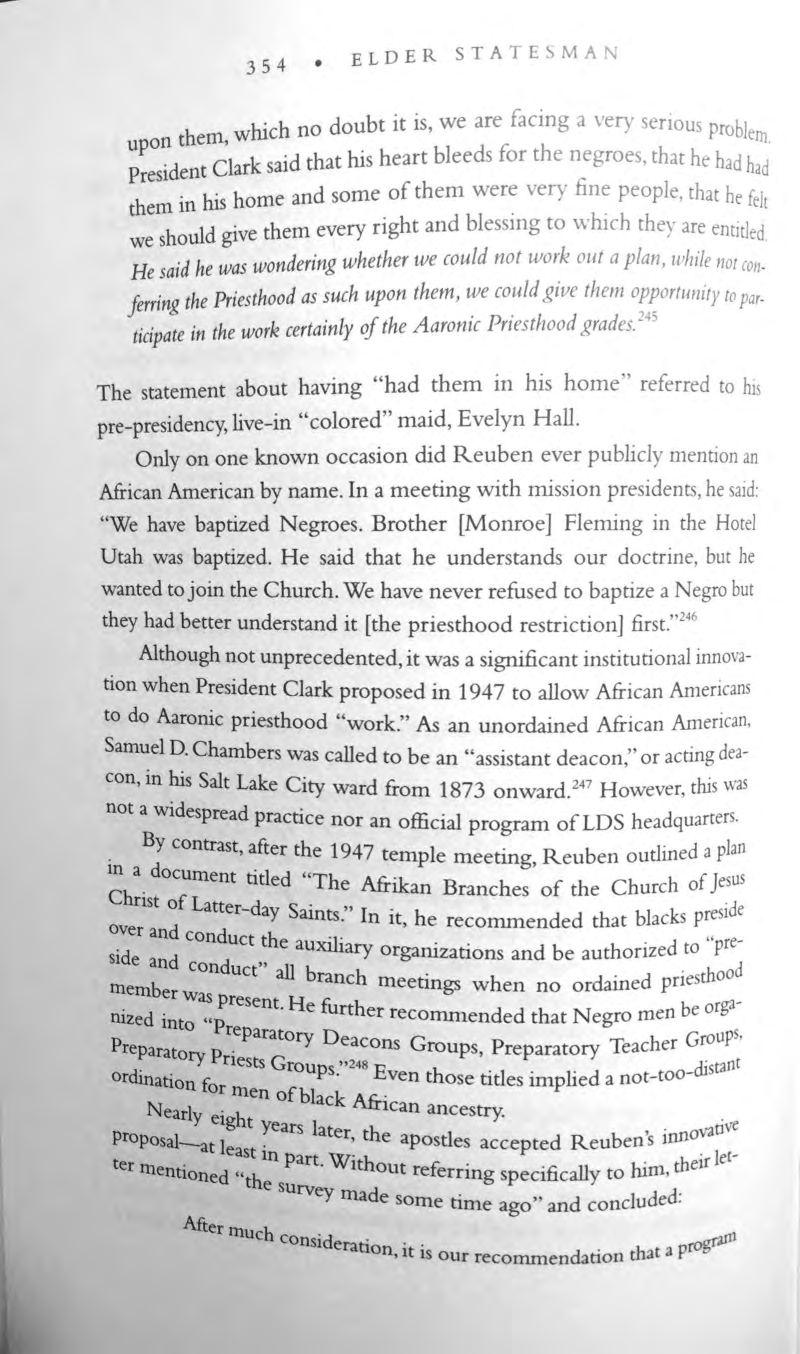Historian D. Michael Quinn reports J. Reuben Clark's recommendation that branches for Black Saints be created and that men be organized into preparatory Aaronic priesthood groups.
- Type
- Book
- Source
- D. Michael Quinn Excommunicated
- Hearsay
- Direct
- Reference
D. Michael Quinn, Elder Statesman: A Biography of J. Reuben Clark (Salt Lake City, UT: Signature Books, 2002), 354–355
- Scribe/Publisher
- Signature Books
- Audience
- General Public
- Transcription
Although not unprecedented, it was a significant institutional innovation when President Clark proposed in 1947 to allow African Americans to do Aaronic priesthood "work." As an unordained African America, Samuel D. Chambers was called to be an "assistant deacon," or acting deacon, in his Salt Lake City ward from 1873 onward. However, this was not a widespread practic e nor an official program of LDS headquarters.
By contrast, after the 1947 temple meeting, Reuben outlined a plan in a document titled "The Afrikan Branches of the Church of Jesus Christ of Latter-day Saints." In it, he recommended that blacks preside over and conduct the auxiliary organizations and be authorized to "preside and conduct" all branch meetings when no ordained priesthood member was present. He further recommended that Negro men be organized into "Preparatory Deacons Groups, Preparatory Teacher Groups, Preparatory Priests Groups." Even those titles implied a not-too-distant ordination for men of black African ancestry.
Nearly eight years later, the apostles accepted Reuben's innovative proposal—at least in part. Without referring specifically to him, their letter mentioned "the survey made some time ago" and concluded:
After much consideration, it is our recommendation that a program be developed which will give to them such blessings as they may properly enjoy—that all of the Negro members in the [Salt Lake] area be organized into a unit which would function somewhat the same as the Deaf Branch or the Spanish-American Branch. Leadership could be brought from elsewhere in the city if felt proper and if needed. Auxiliary organizations could be conducted and the Sacrament could be administered to them in a Sacrament meeting by members of the priesthood from elsewhere in the stake.
The B. H. Roberts Foundation is not owned by, operated by, or affiliated with the Church of Jesus Christ of Latter-day Saints.

